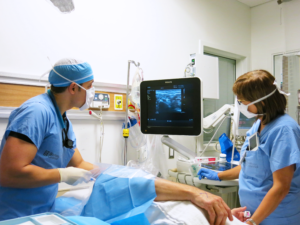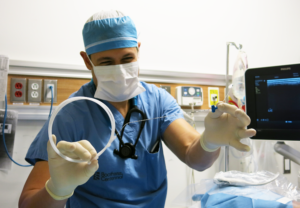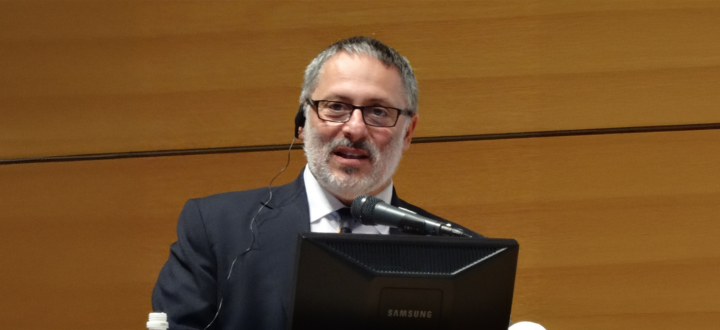COIN: An Innovative Approach to Pain Management at Humber
Carmine injured his shoulder many years ago. Through constant use, his injury worsened until the tear in his rotator cuff impacted another tear in his bicep and nearby tendon. When he recalls the first surgery on his rotator cuff last year, he remembers how painful his recovery was.
“I’ve had several surgeries, and my rotator cuff was one of the worst,” says Carmine.

COIN (Continuous Outpatient Interscalene Nerve Block) provides continuous pain relief for 72 hours after shoulder and upper-arm surgery.
He was prescribed Percocet to manage the pain after his surgery. He hated how the painkillers made him feel, and despite the pain, stopped using them as soon as possible.
A year later, he returned to Humber River Hospital for a second bicep and shoulder surgery, and was relieved to learn that he was eligible for a new approach to pain management called COIN.
“COIN stands for Continuous Outpatient Interscalene Nerve Block,” explains Dr. Kyle Waldman, an anaesthesiologist who is helping to reinvent pain management after orthopaedic surgery at Humber. “Right now, we’re using this so that patients can have continuous pain relief for 72 hours after shoulder and upper-arm surgery.”
COIN is a collaborative effort within the Perioperative and Surgical programs at Humber River Hospital.
“I’m grateful for the opportunity to work closely with Dr. Stephen Halman,” says Dr. Waldman. “He is the orthopaedic lead on this project and his support has been instrumental to its success.”
This system essentially blocks pain sensation from the shoulder down to the upper-arm, using a continuous drip that runs from a bottle attached to the side body through a catheter in the patient’s neck. Patients don’t have to worry about pressing buttons or changing the bottle. They simply leave it alone while they heal from surgery.

“I’m proud to be part of the group of hospitals offering this alternative to patients,” says Dr. Kyle Waldman.
The benefit for patients is clear: They receive uninterrupted pain relief for 72 hours without the need for opioid medication and all the side effects that come with them.
Anaesthesiologists like it because with COIN, the freezing starts immediately after the catheter is inserted before surgery, meaning the amount of anaesthesia the patient requires is greatly reduced. Most can also get through their recovery without prescribed opioids.
“This program has the potential to expand to other surgeries,” says Dr. Waldman. “I’m proud to be part of the group of hospitals offering this alternative to patients, and I’m excited about the difference it could make to our community if more patients can be sent home pain-free without a prescription for opioids.”
“I’m really glad I don’t have to rely on Percocet this time,” says Carmine, who is doing great after surgery. “It’s a big relief.”
Humber River Hospital is at the forefront of surgical innovation in Canada and with donor support, we will continue to expand our Robotic Surgery Program. To learn more about how you can make a difference in expanding robotics or to make a donation, please contact Caterina Magisano at cmagisano@hrh.ca






